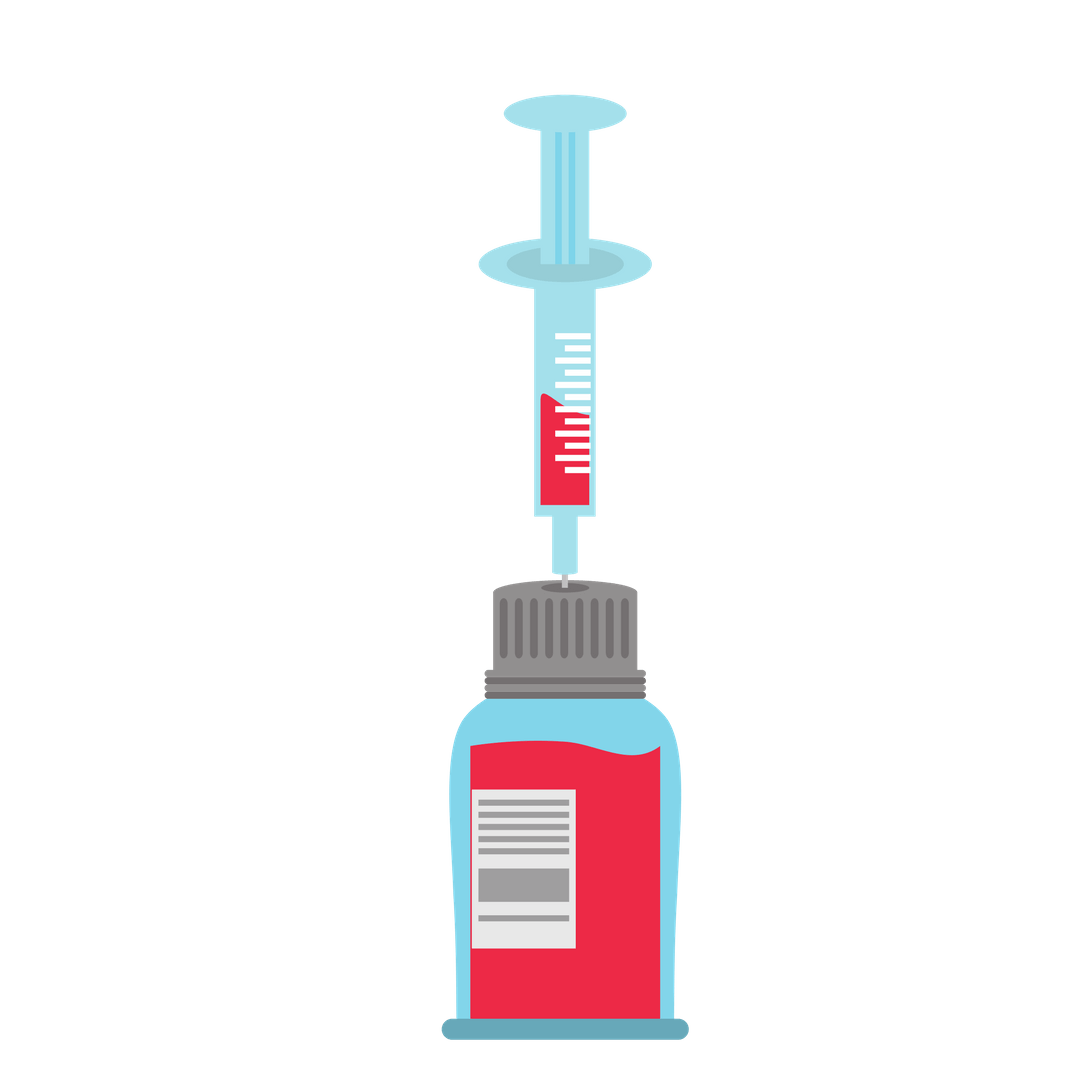
Okay, so you think you might be experiencing signs of menopause. You’ve noticed a number of symptoms, and you suspect menopause or early menopause might be at the heart of the matter. How can you know that what’s happening is menopause or Premature Ovarian Failure (POF)? Visiting your doctor is the only sure way.
Your doctor will advise you on whether you are close to menopause by conducting hormone testing, pelvic examinations, and correlating the results with the history of your menstrual periods and age.
But before we get into the details, what exactly is menopause and how does it affect a woman’s health?
Menopause is the stage where the ovaries stop producing eggs, and a woman doesn’t get her period for 12 consecutive months. It is a gradual process that may take years. It sounds complicated, doesn’t it?
Many women fear the menopause journey. The biggest question is, are we there yet? And when will this be over? But rarely do we know how to answer that as there is no clear, distinct start or end point. All we can rely on are the telltale signs and symptoms given off by your body; and Oh, how traitorous the body can sometimes be.
Some of the signs and symptoms of menopause include:

- Vaginal dryness
- Low libido
- Period disruption: sometimes light/heavy/or none
- Hair loss
- Breast pain and tenderness
- Hot flashes and night sweats
- Heart palpitations
- Joint pains and mood swings
- Panic and sleep disorders (2), (3)
Now all these symptoms individually could point to anything else, but when they come together, they likely point to oncoming menopause.
However, not many of us are good at reading our bodies. We may not notice the early signs, and that’s okay. You might be very busy with your work and may not notice that your body is undergoing a massive change.
Let us first briefly discuss the gradual steps of menopause: (5)
Incoming! Perimenopause

This is every woman’s first point of interest. Your body will give off some very helpful clues that your menopause process is about to start. Most are physical in nature. You could still experience your menstrual periods for a few more years. Most women experience the following signs because the hormone levels are changing unevenly at this stage:
- Hot flashes and mood swings
- Sleep disturbances
- Vaginal dryness.
And beware – a woman can still get pregnant at this stage, so it is important to check on your contraception options with your healthcare provider.
We are there! Natural Menopause (3)
Then menstruation ends. A woman confirms this when she doesn’t get her period for 12 consecutive months. It mostly occurs in women between the ages of 40 and 58.
What’s next? … Postmenopause (2)
This is the final stage after the perimenopause ride. Every woman is unique, and some may have a few surprises at this stage like random hot flashes. Estrogen levels are constantly decreasing, and that is why some symptoms may still linger.
Yes, hormones can be annoying. Some women enjoy a smooth ride and don’t experience any lingering menopause signs – others not so much!
A woman’s health is dependent on a proper hormone balance. There are numerous tests available to test hormone balance and can help you determine what stage of menopause you are in. However, there is no straightforward test to predict or confirm perimenopause or menopause.

Hormone Testing
Hormone tests are used to check the level of specific hormones. Although these tests are not necessarily indicative of menopause or early menopause, hormonal testing is important to evaluate fertility problems or establish possible causes of periods stopping at an early age. These tests can also unearth causes of symptoms that can mimic thyroid disease.
Q: Is there a simple hormone test to tell if you’re nearing menopause, or are already past it?
A: No. These tests can only guide your clinician on possible causes of symptoms, by evaluating woman’s hormonal levels. However, they should not be used to treat menopausal symptoms.
Saliva Testing, (1), (4), (5)
For over a decade saliva testing has been the most common human body test available to physicians. It is also used in clinical research by the National Institute of Health (NIH) for conducting studies for the past 30 years. Many insurance companies cover saliva tests, and patients get reimbursement.
So far, it has proved to be the most reliable test for hormone availability in the body. Testosterone, Estrogen, Cortisol, DHEA, and Progesterone can all be identified in the test.
Saliva tests are able to identify the levels or intensity of hormones at the cellular level. It is commonly used for women who are taking hormones in drops or sprays (sublingual) or in lozenge or troche (trans-mucosal) format. This type of hormone delivery focuses the hormones in the salivary glands. Sometimes, it may not be helpful as the hormone’s concentration level may be too high in the saliva to be useful.
However, besides being expensive, saliva tests are not adequate to test for menopause due to the following reasons: (7)
- They need 20 times more sensitivity than other tests and errors are likely to be made.
- Food and beverages interfere with the results.
- False results due to periodontal diseases.
- Saliva is often contaminated by topical hormones on the hands or lips.
- Cannot measure hormone metabolism.

Serum/Blood Test
Serum tests are used to identify the intensity of a free hormone. This is the hormone that could easily enter a cell. It also measures the total hormone, that is, hormones that are attached to matter that carry hormones into the bloodstream. Serum tests are also used to add up the combined total and free levels of hormones.
(1), (4), (5)
A sample of blood (serum) is drawn from the woman and used to measure the hormone levels. It is, however, not accurate in telling the bioavailable hormone – the total amount of hormones available and active in tissues and organs. Another disadvantage of the test is that sometimes the tests are inconsistent especially when they point to a hormone value that falls within the low-normal range.
For women who use the patch or cream (transdermal) forms of hormones, serum tests are less helpful to them. This is because the hormones are fixed on the surface of the red blood cells and may not appear in the serum in significant testing amounts.
Serum tests cannot be used to measure hormonal metabolics and are not possible to measure multiple times to gather logistics.
Most insurance companies cover blood tests.
FSH Test
(Follicle Stimulating Hormone), (1), (4), (5)
FSH is used to test the hormone levels of premenopausal women who experience early menopause signs like mood swings or heat flashes. It’s also another form of a blood test.
For a proper test to be conducted, the woman’s blood is drawn three times at intervals of 60 minutes starting exactly at 8 am. But physicians often draw the blood once at the time of the woman’s visit, not necessarily at 8 am. The single test provides information on the woman’s hormonal status and provides a basis for follow up treatments.
This method, however, should not be used to accurately measure sex steroid hormone production or indicate the reproductive status of women. FSH levels often fluctuate 10 years before menopause and are therefore not dependable for such information.
Patients usually get reimbursed for dosage treatment by insurance companies.
This treatment is not recommended for women with cancer of the uterus, ovary, breast, pituitary gland and hypothalamus.
Some side effects of the FSH test may include:
- Swelling and fluid retention
- Fever or chills
- Dry skin, hair loss or rash
- Rapid pulse
- Headache, fatigue, and dizziness.
- Spotting or menstrual changes
TSH TEST
(Thyroid Stimulating Hormone), (1), (5)
This is a test of the thyroid gland to see if it is working efficiently.
The tests show whether it is overactive or under-active, hyperthyroidism and hypothyroidism respectively.
The physician tests how much of the thyroid hormones are present in your blood.

The woman’s blood is drawn and then analyzed in a lab. It is best done in the morning when TSH levels are more stable. You would need to stop medications like lithium or dopamine before undergoing the test. No prior preparation is needed before the test like avoiding meals.
This service is not often covered by insurance companies.
Estrogen Test
(1), (5)
Estrogen tests measure the levels of estrogen in a urine or blood sample. It measures important estrogen hormones such as estriol, estrone and estradiol and how much they have dropped after menopause.
The woman doesn’t need any special preparations before the test like fasting. A health professional will carefully draw the woman’s blood and put it through a lab test. The only risk involved is a small bruise forming at the point of penetration of the needle.
Results are often available within 24 hours. Some insurance companies cover estrogen tests.
How to get past Menopause in a Bliss
There are various hormone therapies (HT) to relieve menopause related symptoms and significantly decrease the risks for diseases such as osteoporosis. These therapies include: (6)
- Estrogen Therapy (ET)
- Progestogen therapy
- Estrogen-progestogen therapy (EPT)
- Androgen Therapy
Bioidentical hormone therapy (BHT)
The Bottom line?
When you suspect that you are in perimenopause (before menopause), it is an excellent time to visit your doctor/naturopath for a complete medical examination. A qualified health professional will make the diagnosis by primarily reviewing your menstrual history, medical history, and your signs and symptoms.
REFERENCES
- Awakening Athena | Health, Heart & Mind Institute,2004- Alternative Medicine | Kenna Stephenson,
- books.google.co.ke/books/about/Awakening_Athena.html?id=CbT2PAAACAAJ&redir_esc=y



